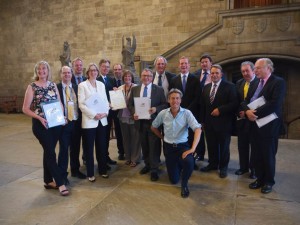Readers who follow national or international news do not need reminding of the increasing uncertainty and instability in many countries around the world near and far away. As a trading nation with one of the largest economies in the world we are all directly affected and rightly concerned.
The daily news underscores the fact that the first responsibility of our government is to protect its citizens. Our security is more than just making sure we have capable and well equipped armed forces, it is also about ensuring we have energy and food security.
In 2010 when the Coalition Government was formed, the UK was almost entirely dependent on imported energy. Thankfully we are not dependent on Russian gas. Since 2010 the Government has set in train a radical overhaul of our energy market in the UK and committed long term, large scale investment to producing more home generated energy.
I am pleased to report that progress is being made in generating more of our own energy, including renewable energy. ReGen SW, the organisation that supports renewable energy businesses in the South West, has recently published their annual report looking at what progress is being made in building a green future for our peninsula.
Their findings are encouraging as the South West now generates 8.3 per cent of its electricity from renewable sources, enough to power a quarter of homes across the region. This means that we are in with a chance of meeting the ambitious, but achievable Government target of generating 15% of our electricity from renewable sources by 2020.
This surge in renewable energy production has not come about by accident, it is the result of sustained Government investment in the South West’s energy sector. 21% of all projects supported by the Government’s Feed in Tariff scheme are in the South West, as are 14% of all projects supported by the Renewable Heat Incentive. As well as direct taxpayer funding, the energy sector in the South West is benefiting from private investment secured in part by two flagship Government projects, the Energy Act and the Green Investment Bank.
As well as this, the FabTest site in Falmouth is hosting a range of locally engineered devices that are generating energy from the sea. There are a wide range of engineering companies based around Falmouth that are contributing to offshore wind and marine renewable energy generation. New energy sources, particularly marine energy, need to be supported, so it is good to see local plans being drawn up on how to spend the UK Growth and EU funding for Cornwall, including renewed investment and support for Cornwall’s marine energy sector. In a fast changing and competitive world it is good to see this sustained investment in new technology where the UK currently leads the world.


You must be logged in to post a comment.